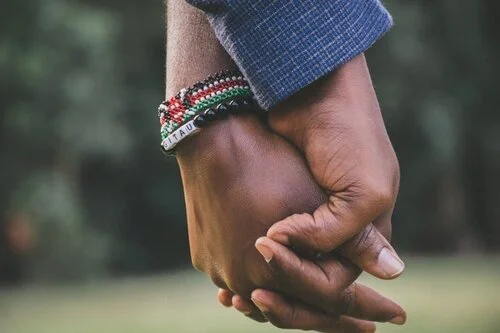6 Tips for Daily Navigating Conflict
Even in the best of times, a relationship requires your constant attention. Breaking news: It hasn’t been “the best of times” lately!
Uncertainty almost always increases relationship stress. Another unnecessary update: Uncertainty is the new normal.
All of this adds up to the increased potential for couples conflict. And on top of that, you’re likely experiencing decreased ability within the realm of conflict resolution. Talking about being caught in between a rock and a hard place.
Can people deal with conflict when the problems around them in the world just make it so much harder to keep a cool head?
The short answer is "yes." The longer answer will make up the rest of this post.
The Impact of External Stress on Your Relationship
Every relationship experiences stress from time to time. In general, when people and couples are stressed, they:
Have less time for activities for the fun of it
Withdraw and become less affectionate
Operate with less physical and emotional energy
Are more vulnerable to illnesses
Grow irritable and confrontational
Communicate less productively
All of this (and more) creates fertile ground for conflict and detachment to grow. Without some teamwork, a couple can quickly slide into feeling alienated and disconnected from each other.
COVID-19 and Uncertainty
It will take decades to document the wide-ranging impact of this pandemic. For now, here are a few factors with the potential to wreak havoc on your relationship:
Disagreeing on what safety measures to take
Economic hardship
Suddenly being home together all the time
Suddenly having your kids home all the time
Missing your family and your social circle
Landing on different sides of the myriad social divisions
All of this (and more) is happening now on top of the more common stress issues described above. Obviously, managing relationship stress is crucial, especially now.
6 Tips for Daily Navigating Conflict and Relationship Stress
1. Recognize the Symptoms
Of course, you will clearly know something unpleasant is happening. But it helps to slow down and analyze the situation. Is it a one-time issue or are stress symptoms waving red flags all over your relationship?
In order to navigate the stress-induced conflict, you must first accept the problem exists. Sticking your head into the sand and hoping it goes away is not a sound strategy.
2. Recognize Your Stressors
Once you accept the existence and manifestation of stress, you next have to identify its triggers. What factors are driving a wedge between you and your partner?
Keeping a journal is useful for this kind of exercise. That's because some triggers aren't that obvious. You'll have to do a little bit of digging.
3. Commit to Healthy Communication
By “healthy,” I mean:
Face-to-face: power down your devices
Frequent: set up regular and lengthy discussions
Fair: no interruptions, check your body language, factor in power dynamics
Direct, respectful communication will be pillar #1 of your conflict resolution foundation. Without communicating—and that includes attentive listening—there won't be understanding. Without understanding, you won't be able to even start to unravel the knot.
4. Commit to Compassion
Pillar #2 of your conflict resolution foundation is compassion. It’s okay—and normal—to get upset with each other. But that is never an excuse to get mean or aggressive.
You can disagree while still understanding the other person’s perspective. When you let compassion guide even the toughest of interactions, you show each other dignity and respect. And that spells SUCCESS.
5. Set Up Time For Yourself
This may sound impossible during the pandemic, but with some teamwork, you can try your best to make it happen. You both need solitude, self-care, and social time with others (even if it’s virtual).
Why not discuss which parts of your home could be used to provide a place of retreat for both of you. And maybe even contemplate a schedule for each of you to get a chance to utilize them.
6. Set Up Fun Time Together
In stressful times, it can be hard to laugh and smile. Set aside a certain amount of time each day for something light-hearted and bonding. That could be watching a funny movie together, playing a silly game, or learning a new thing together (without taking it too seriously or competition, of course).
Whatever you decide on, having fun together will create some much-needed balance and reinforce tip #4.
Couples Counselor = Essential Worker
Just about everyone is calling these times “unprecedented.” That means we ALL need help.
Committing to therapy together is a powerful step toward healing and re-connecting. Think of your couples counselor as your relationship’s essential worker. Why not pick up the phone today and set up a free consultation with me or learn more about couples counseling. It may be the most important mitigation tactic you employ.


